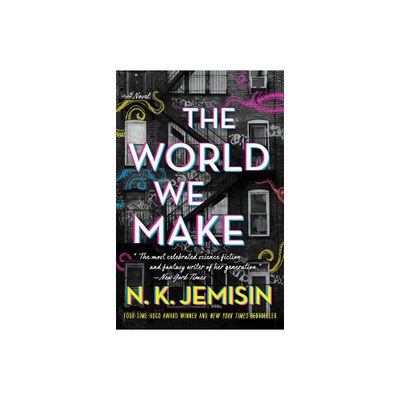Home
the Place We Make: Breaking Legacy of Legalized Hate
Loading Inventory...
Barnes and Noble
the Place We Make: Breaking Legacy of Legalized Hate
Current price: $17.50


Barnes and Noble
the Place We Make: Breaking Legacy of Legalized Hate
Current price: $17.50
Loading Inventory...
Size: Audiobook
*Product Information may vary - to confirm product availability, pricing, and additional information please contact Barnes and Noble
A thoughtful investigation into the incredible true story of a Black man convicted and exiled under the Oregon Exclusion Law in 1851—and a contemporary White woman wrestling with racism and faith after learning she’s a descendant of two men who assisted in the exile.
“A beautiful rendering of an ugly history. A worthy read.”—Chanté Griffin, advocate, journalist, and author
A
SOJOURNERS
BEST BOOK OF THE YEAR
Moving back to the outskirts of Portland, called the “Whitest city in America,” prompted Sarah’s curiosity about the colonization of the West, her ancestors, and the legal exile of a Black man. She examined four city leaders involved in Jacob Vanderpool’s case—Oregon City’s founder, the case judge, Jacob’s accuser, and a local pastor—and the cultural and theological fallout of their decisions. Along the way, Sarah took a hard look at her tendencies, unconscious and deliberate, to ignore the possibility of prejudice in her heart.
Vanderpool’s case proved a fascinating lens on a far bigger story than one trial, illuminating truths to help us all come to honest terms with our past, learn to repent, and contribute to the good of the people and places around us.
Journey through this sensitive expedition into the events that remain a thorn under America’s skin and discover afresh the vast potential of the flawed but endlessly redeemable—human heart.
“A beautiful rendering of an ugly history. A worthy read.”—Chanté Griffin, advocate, journalist, and author
A
SOJOURNERS
BEST BOOK OF THE YEAR
Moving back to the outskirts of Portland, called the “Whitest city in America,” prompted Sarah’s curiosity about the colonization of the West, her ancestors, and the legal exile of a Black man. She examined four city leaders involved in Jacob Vanderpool’s case—Oregon City’s founder, the case judge, Jacob’s accuser, and a local pastor—and the cultural and theological fallout of their decisions. Along the way, Sarah took a hard look at her tendencies, unconscious and deliberate, to ignore the possibility of prejudice in her heart.
Vanderpool’s case proved a fascinating lens on a far bigger story than one trial, illuminating truths to help us all come to honest terms with our past, learn to repent, and contribute to the good of the people and places around us.
Journey through this sensitive expedition into the events that remain a thorn under America’s skin and discover afresh the vast potential of the flawed but endlessly redeemable—human heart.


















